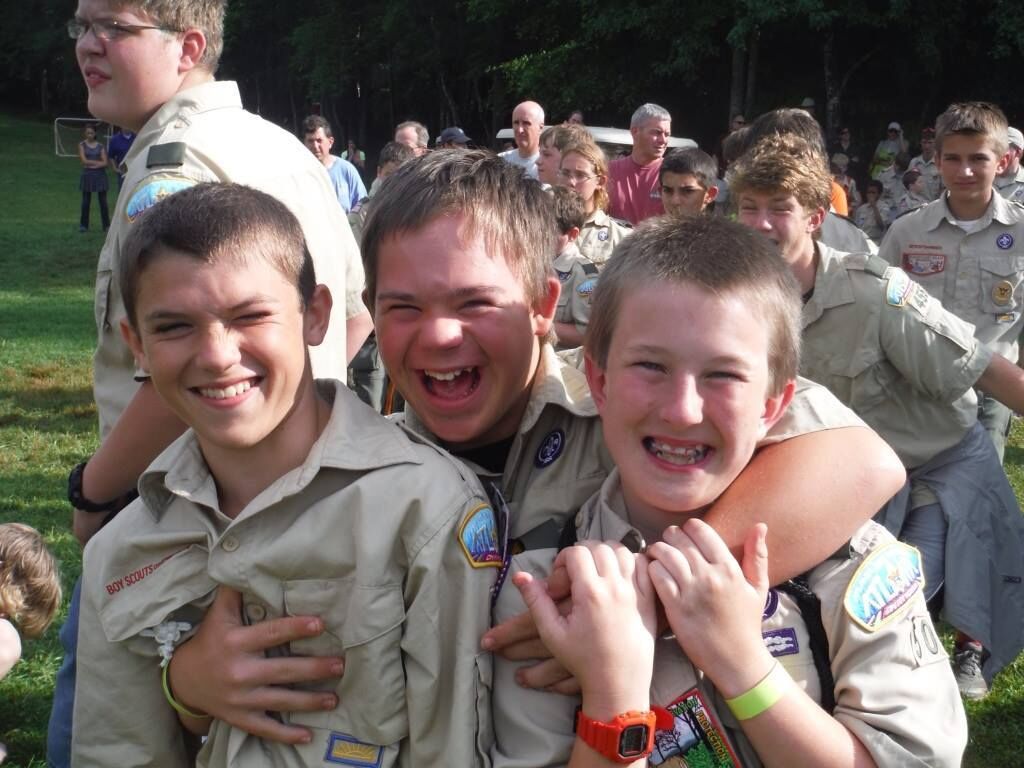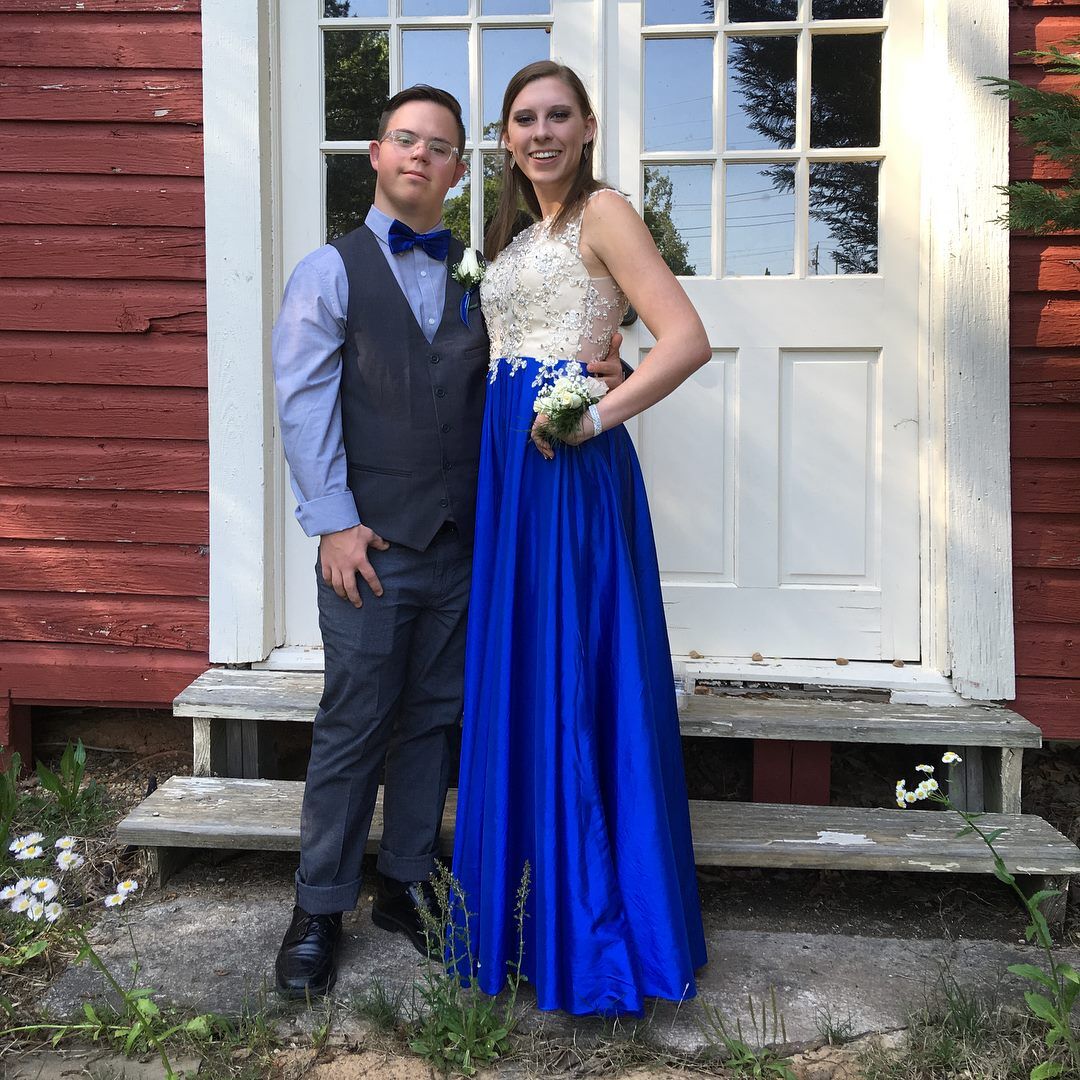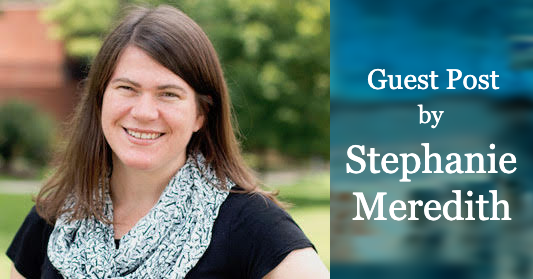
By Guest Contributor Stephanie Meredith
A note from Amy Julia: I am grateful for Stephanie Meredith for all sorts of reasons. One, she’s the force behind the Lettercase booklets that provide up-to-date and accurate information for families and medical professionals about Down syndrome and other genetic conditions. Two, she’s a lovely human being. And three, she’s a mother of a child with Down syndrome who is farther down the road than we are, so I can look to her for advice and guidance. Recently, she posted about the friendships her son Andy had formed over the course of his school years, and I asked her if she would be willing to write about what her family did in order to create a structure where those friendships could thrive. She’s offered ten tips for moms and dads who want to help our kids with Down syndrome (and other disabilities) have thriving social lives. I’m so glad she can be here with us today.
When my son was born with Down syndrome, one of my biggest concerns was how kids would treat him. I worried about kids teasing him or pretending to be his friend and then hurting him. But I’m happy to share that the vast majority of kids have been wonderful, and I have photographic evidence that Andy is much cooler than I was in high school.
People are drawn to Andy because he’s genuinely fun, charismatic, and funny. He’s the kind of guy who invents catchy phrases, invites people to lunch and bowling, and makes funny videos on Instagram. But what people appreciate the most about him is that when he loves you, he makes you feel like you’re the most important person in the world. In fact, when he really loves his friends, they sometimes rise to the level of becoming “brothers” and “sisters.”
For a while, we tried to correct him when he gave people these labels. It can make for awkward conversations when teachers or grocery store clerks think you have 10-15 kids, and those kids don’t actually belong to you. But then I finally asked Andy what the difference was between friends and siblings, and he said, “Brothers and sisters don’t go away.”
He’s right. These particular kids meet up for lunch and give him rides home from work, and they have come back to visit him from college and invited him to participate in their weddings. Each year he’s added new “brothers” and “sisters” so that by the time he graduated from high school, he had built a strong family of support.
And while Andy and his wonderful friends deserve most of the credit, I do think his nerdy mom helped along the way. While I recognize we have been incredibly lucky to be surrounded by wonderful people, I’ve made a list of what we did to help create conditions for Andy’s social experience:
- Inclusion. Andy goes to school with these kids, and he also participates in church, Scouts, lacrosse, weight lifting, and Unified basketball with them. They played soccer as little kids and took yearbook and athletic medicine classes together in high school.
- Organized activities. Participating in some of these organized activities, like church and sports, has meant that even if some of the spontaneous social invitations drop off in middle school, our kids still have opportunities to hang out with friends.
- A stable place. Another key for us, which we know is unique and that we are lucky, is that Andy was able to go from pre-K to 12th grade in the same place, so the kids have known each other their whole lives. It was amazing at his graduation party this month to see kids who I could identify as his “brothers” from 5th grade and 8th grade and his church and lacrosse “brothers.”
- A fun house. In the early years, I invited other kids over for play dates and birthday parties, and I found that other parents would also invite us over. As the kids got older, we made a huge homemade slip and slide for a party to celebrate the end of school, and Andy received a low budget movie projector one year for Christmas so that we could invite kids over to watch outdoor movies on our garage.
- School support. We were also very fortunate to have a school-wide peer education program about disabilities already in place at our elementary school. This program helped us talk to kids about how to be good friends, how to be understanding of differences, and how to be helpful as needed. This program required significant volunteer support from parents, and those parents became invested in the program just as much as the parents of kids with disabilities.
- Friends with disabilities, too. We have participated in Special Olympics Unified sports and Challenger League Baseball. There are certainly friends from inclusive settings who really connect with Andy, but sometimes his friends with disabilities just seem to really understand where he’s coming from.
- Supportive parents. When Andy stopped getting invited to hang out with friends in middle school and the early high school years, I told some of my mom friends from church about my frustrations, and they jumped in to help by talking to their kids. It turned out that it had become difficult because their kids had started making plans on their own using media Andy didn’t have, so Andy’s friends needed help to know how to be more intentional about including him.
- Access to social media. It’s scary, but we’ve tried to give Andy access to as much supervised social media as he can handle, and teach him how to use it. It’s really hard to be included if our kids can’t communicate in the medium their friends are using. And yes, we’ve had to have conversations about not posting dozens of photos of Batman and shirtless selfies, but all parents have to do that, and these tools can be vital for building relationships.
- Supporting others. We’ve also found it important to support other kids by going to their games, their concerts, their parties, and their events when we can so that they know we genuinely care about them too. People want to be around people who they know care about them
- Empowering Andy. We also encouraged Andy to make plans and helped him set them up. I would help Andy coordinate with parents and girls, and he invited a date to almost every dance in high school. We found out that for some of these girls, Andy was a true friend they needed in the moment, and he’s always a fun dancer. He just needed to be given the tools to take the initiative and make the plans himself. He will also text his friends to ask them out to lunch and bowling, and we’re working on calendaring so he knows how to pick days and times.
It turned out that one of our biggest concerns when Andy was born has turned into one of his greatest sources of strengths: his support network of friends, brothers, and sisters. They have been examples to him in going to college, getting jobs, and being part of a team, but he’s also given back in turn and been a loyal friend and a source of strength for them.





This Post Has 6 Comments
Love, love, love! Great read, & great words of wisdom. Thank you for sharing.
Thank you for sharing your story of your experience with your handsome son Andy. It was really inspiring and full of great information to help us Mama’s who are wanting to help our loved ones with Down Syndrome blossom.
Thank you so much for posting this! My three year old is so charming and lovable and I do worry about how to best support her in developing real friendships.
My daughter has Downs Syndrome . The most important aspects are ( in our opinion) as follows : –
1. Include your child in all family activity.
2. Lots of hugs and cuddles.
3. Regularly read to your child and let your child see the words in the book as you say them.
4. Accept your child for who he / she is, but always strive for the best.
5. Teach your child Makaton if they have a hearing deficit.
6.Give your child with Downs the same boundaries that you give your other kids.
7. Give your child exactly the same life experiences as you would with other kids, with supervision where required.
Thank you so much for sharing and inspiring words of hope and help. I am a grandmother who has guardianship of a 4 year old beautiful girl with Downs Syndrome. She has been in our care since she was one. Love Love Love any help and advice.
Pingback: First Day of School: Penny Starts Eighth Grade - In Her Own Words